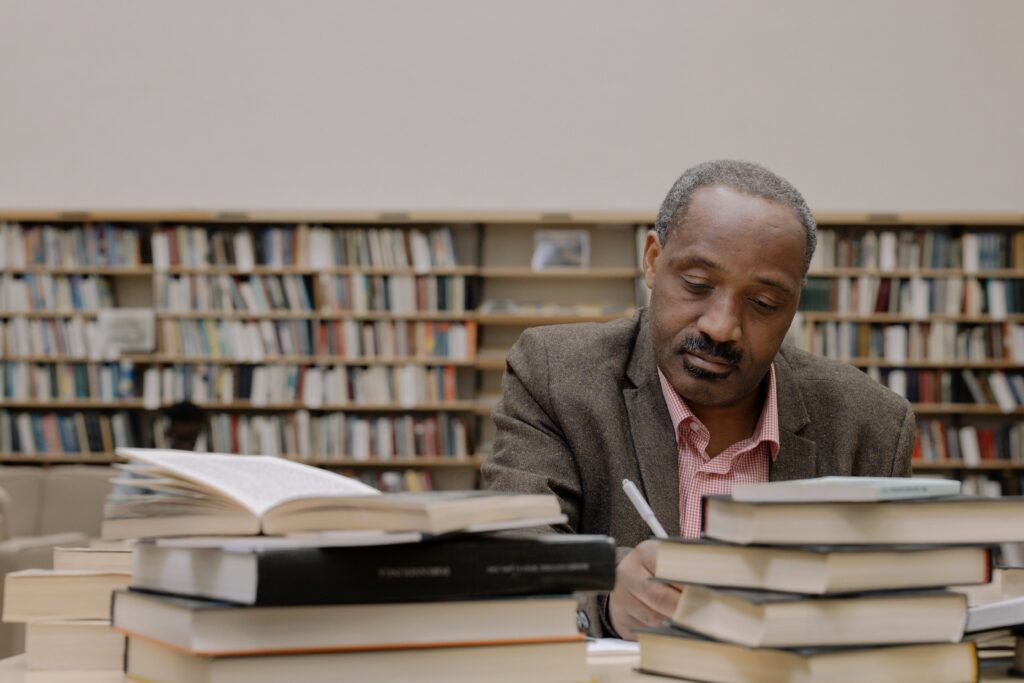Starting a Ph.D. is no light decision. It will be years of hard work with many difficult challenges. You need to be sure that is what you want to do.
A Doctor of Philosophy degree (also known as a Ph.D.) is the highest academic level possible, and students are heavily involved in research. You could also have seen it under different abbreviations such as DPhil, D.Lit, D.Sc, LL.D, or Doctorate. In English universities, like Oxford, it is under the abbreviation DPhil for Doctor in Philosophy.
During a Ph.D. degree, students must research and develop new field areas. They need to find questions that have never been answered or answered imperfectly. To obtain their degree, they need to write a dissertation (of hundreds of pages) and defend it in front of a panel of experts. It is a stressful time for those students since the panel could be unsatisfied with the work and stop them from getting the degree they have been working on for years. Peer review is an essential step in the research world to give legitimacy to your work.
With a Ph.D., you can become a university professor, researcher, or scientist in many fields. However, the realms of possibility do not stop there. Obtaining such a degree comes with a lot of prestige, and the most powerful and wise personality of our times had it.


Angela Merkel was the chancellor of Germany from 2005 to 2021. She was the most powerful woman in the world and was often described as the leader of the free world after the US election of 2016. Not only was she an important political figure, but she was also a scientist. Merkel obtained a doctorate in quantum chemistry in 1986 and worked as a research scientist until 1989.
Martin Luther King Jr was a civil rights activist in the United States and fought against the Jim Crow laws with nonviolent resistance and civil disobedience. He won the Nobel Peace Prize in 1964 for his fight for racial equality. He was a pastor from Alabama and received a Ph.D. in theology in 1955.
Everything You Need to Know When Applying for a PH.D.
Content
Before Your Start Your Applications Process
Choosing Programs
Preparing Applications
Applications Timeline
Before You Start Your Applications Process
Depending on the university, a Ph.D. can take at least three years (some are a minimum of five years). Usually, students extend their degree for a longer period. Because of the research’s intensity or errors, some students extend their study period, and some never finish it. This degree implicates a significant level of involvement. Loneliness is recurrent for Ph.D. students since their research may cause them to isolate themselves from other students their age.
Students need to have completed a Master’s degree with high academic achievements. In some cases, undergraduate students with Honours degrees are considered for Ph.D. programs. Before applying, some universities require coursework to start their degree.
It is crucial to note that the salary and employment opportunities won’t necessarily increase with the obtention of a Ph.D. In the Western world, there is a lot of competition for academic positions, and a Ph.D. degree does not guarantee a job. A Ph.D. could be badly perceived on the job market since employers might not want to hire you. A higher degree means a higher salary; a company may not want to pay you that much. You will probably hear that you are too educated for a role.
Take some time to consider the pros and cons before starting the application process. You need to be sure about doing a Ph.D. It can be a wonderful experience, but it does have its hardship. You need to know what you’re getting yourself into.
Choosing a Ph.D. Program
Choosing the right Ph.D. program is vital since it will be your life for the next few years, and this degree will follow you for the rest of your life. You must consider the research opportunities, faculty expertise, program reputation, and available resources of your future university.
First, the University’s reputation is crucial since there is a lot of competition for academic positions. To become a professor, you might need more than a Ph.D. Not only should you think about the overall reputation of your university, but you should also look at your program’s reputation at this university. Cambridge is a prestigious British university, particularly in its art programs. However, Oxford might be preferable for politics or history.
Second, and more importantly, look at your potential research advisors. You must find a compatible and supportive advisor. You will work closely with this person, and they will support you during the most challenging period of your degree. You need to trust them and have a good relationship. Do not undermine this part! Try connecting with them before applying, and establish a relationship. You can message them through email and have an interview to discuss your subject. You could also meet them during forums or congress. Not only will you be able to give a lasting impression on them, which is helpful for your applications, but you will also see if it is a good fit for you.
Finally, some faculty offer a list of available projects that you must select. Look at them, and make sure you want those subjects. You should also search if a professor at the university specializes in your research subject. Talking to a professor about it could help you understand if this professor is interested in your search.
Preparing Application Materials
Applying for a Ph.D. is a long and tedious process. It has many components, such as a statement of purpose, letters of recommendation, a resume, and a writing sample. It differs a little from university to university. As an international applicant, you might need proof of language proficiency, like the TOELF.
Building a solid resume is necessary to stand out from other candidates. Showcase your academic and research achievements. If you had the chance to help a professor in their research or have taught a class at your university, those are perfect experiences to provide on your resume.
The University will ask you for a letter of recommendation. You explain your passion for your subject and how your past experiences will help you during your degree. Talk about how you cultivated relationships with professors and mentors during undergraduate or master’s studies. Finding funding is crucial for researchers, so explain how you could do that and your expertise in it.
Competitive degrees, like Oxford’s or Harvard’s, demand you take a standardized test evaluating your English level and logical thinking. They usually ask for the GRE, which is a difficult test. You must prepare for it, so calculate to study at least two months in advance. A good GRE score will improve your chances of getting accepted. Getting ready for the GRE is equivalent to preparing for the GMAT.
Some universities might ask for a research proposal. You should develop one, even if it is not officially requested. Ask your professor to help you to build one. It is the most essential aspect of your application. Universities will be able to see if it is realistic and exciting research.
You should be prepared to send copies of your transcripts, letters of recommendation from past professors, and personal statements. You will be invited to an interview with the board of academic directors before being accepted.
Timeline for Application Process
The application timeline differs from the requirements of each university. Read carefully their website page.
Start your application process 18 to 12 months in advance. This time will allow you to find the specific programs you are interested in and see their requirements. You will also have time to communicate with potential advisors for meetings and find the right one for your needs. Starting your search early will allow you to change subjects, programs, or advisors without delaying your applications. You might change your mind while searching for programs, and you will have a time buffer if you start early. You will also have to prepare for the GRE. This test is not to be taken lightly. The questions seem easy, but it is much harder to stand out than you might think.
Twelve months before the deadline, you should have narrowed your program choice and contacted your primary potential advisor. You should have more than one option, but applying for a Ph.D. is a long process, and you should not have that many different universities. Start asking for letters of recommendation. Professors work hard and long hours. You need to give them time to write your letter. You might have to try multiple different professors before getting a positive answer.
You should take your first GRE tests nine to six months before the application deadline. You will have time to study and retake it if the score deceives you. Start drafting your statement of purpose and think about your research proposal. You also still have time to get experiences that could improve your resume, like teaching experiences.
Four to two months before applying, review your resume and letter of motivation. Reread the requirements on the website. Seek feedback from mentors, professors, or peers. Send your application before the deadline. There is no reason to wait until the last day. Ensure you are ready when applying since you won’t have another chance after that.
You should start preparing for your interview when you receive a positive answer. Make sure you are convincing when talking about your research. Prepare yourself by answering possible interview questions beforehand.
A Ph.D. degree is a process and an outstanding achievement. If you don’t get the program you hoped for, consider reapplying a year or two later. Look at other programs that could interest you. Don’t give up! If you are passionate about your subject, you will find a professor who will accept to mentor you. Be open to criticism. In this field, it is essential.
